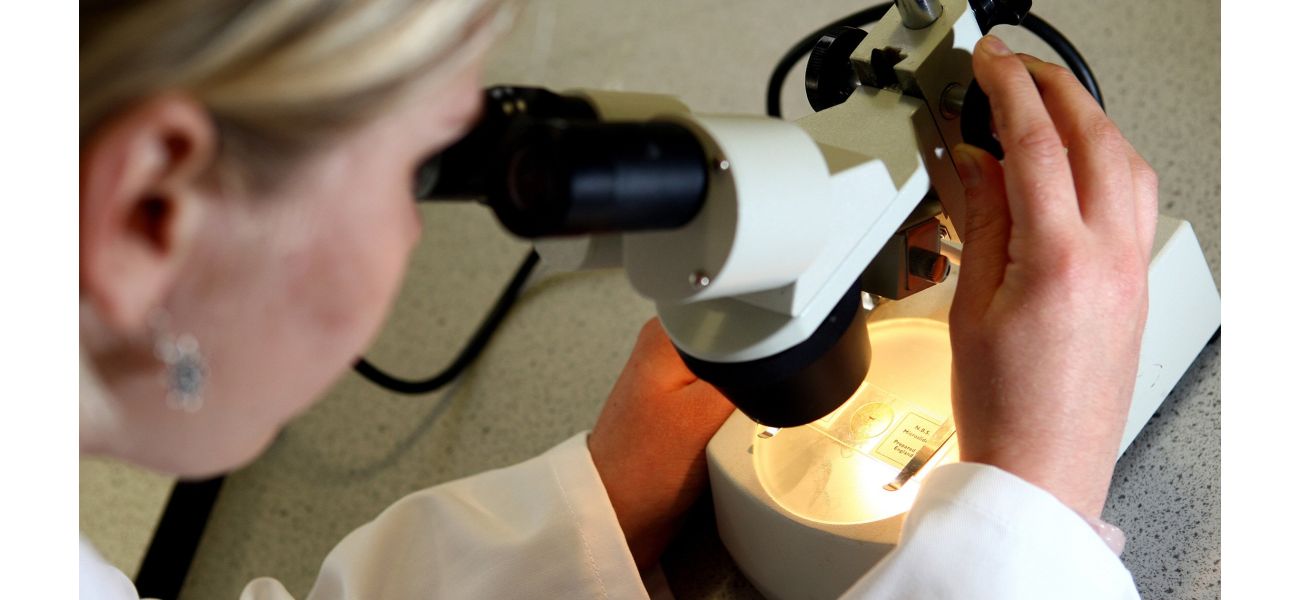Quick test using lasers may identify various forms of dementia in mere seconds.
This method can identify Alzheimer's disease with over 93% accuracy.
October 17th 2024.

According to researchers, a groundbreaking new laser has the potential to diagnose dementia in a matter of seconds. This innovative test has the ability to detect various types of dementia, which could completely change the way this disease is diagnosed. The University Hospital Southampton and University of Southampton conducted a study that utilized lasers to analyze blood, spinal fluid, or mucus samples in order to identify individuals with dementia at an early stage.
Typically, it can take up to two years to receive a dementia diagnosis. However, this new laser-based technique is not only more affordable than current tests, but it also provides results in just seconds. In fact, initial trials have shown an impressive accuracy rate of over 93% in detecting Alzheimer's disease. Professor Chris Kipps, a neurologist at University Hospital Southampton, describes this as a major breakthrough in medical technology that has the potential to completely transform the approach to dementia diagnosis.
He goes on to say that this innovation is not just about improving the quality of healthcare, but it's also a paradigm shift in how we view and treat neurodegenerative diseases in the clinic. The laser can diagnose multiple types of dementia, which is especially important as the number of individuals living with this condition is expected to rise in the coming years.
Currently, there are more than 850,000 people in the UK living with dementia, and this number is projected to reach 1.4 million by 2040. With different types of dementia, such as Alzheimer's and vascular dementia, it can be challenging to accurately diagnose and differentiate between them. This often leads to delayed diagnoses and less effective treatment options.
Professor Sumeet Mahajan, a molecular biophotonics and imaging expert at the University of Southampton, explains that their integrated approach has the potential to revolutionize dementia diagnostics. There is a pressing need for more efficient and cost-effective solutions in this field, and their holistic MX-Raman technique is uniquely equipped to address these challenges. The ultimate goal is to improve patient outcomes and provide better care for those living with dementia.
Typically, it can take up to two years to receive a dementia diagnosis. However, this new laser-based technique is not only more affordable than current tests, but it also provides results in just seconds. In fact, initial trials have shown an impressive accuracy rate of over 93% in detecting Alzheimer's disease. Professor Chris Kipps, a neurologist at University Hospital Southampton, describes this as a major breakthrough in medical technology that has the potential to completely transform the approach to dementia diagnosis.
He goes on to say that this innovation is not just about improving the quality of healthcare, but it's also a paradigm shift in how we view and treat neurodegenerative diseases in the clinic. The laser can diagnose multiple types of dementia, which is especially important as the number of individuals living with this condition is expected to rise in the coming years.
Currently, there are more than 850,000 people in the UK living with dementia, and this number is projected to reach 1.4 million by 2040. With different types of dementia, such as Alzheimer's and vascular dementia, it can be challenging to accurately diagnose and differentiate between them. This often leads to delayed diagnoses and less effective treatment options.
Professor Sumeet Mahajan, a molecular biophotonics and imaging expert at the University of Southampton, explains that their integrated approach has the potential to revolutionize dementia diagnostics. There is a pressing need for more efficient and cost-effective solutions in this field, and their holistic MX-Raman technique is uniquely equipped to address these challenges. The ultimate goal is to improve patient outcomes and provide better care for those living with dementia.
[This article has been trending online recently and has been generated with AI. Your feed is customized.]
[Generative AI is experimental.]
0
0
Submit Comment





